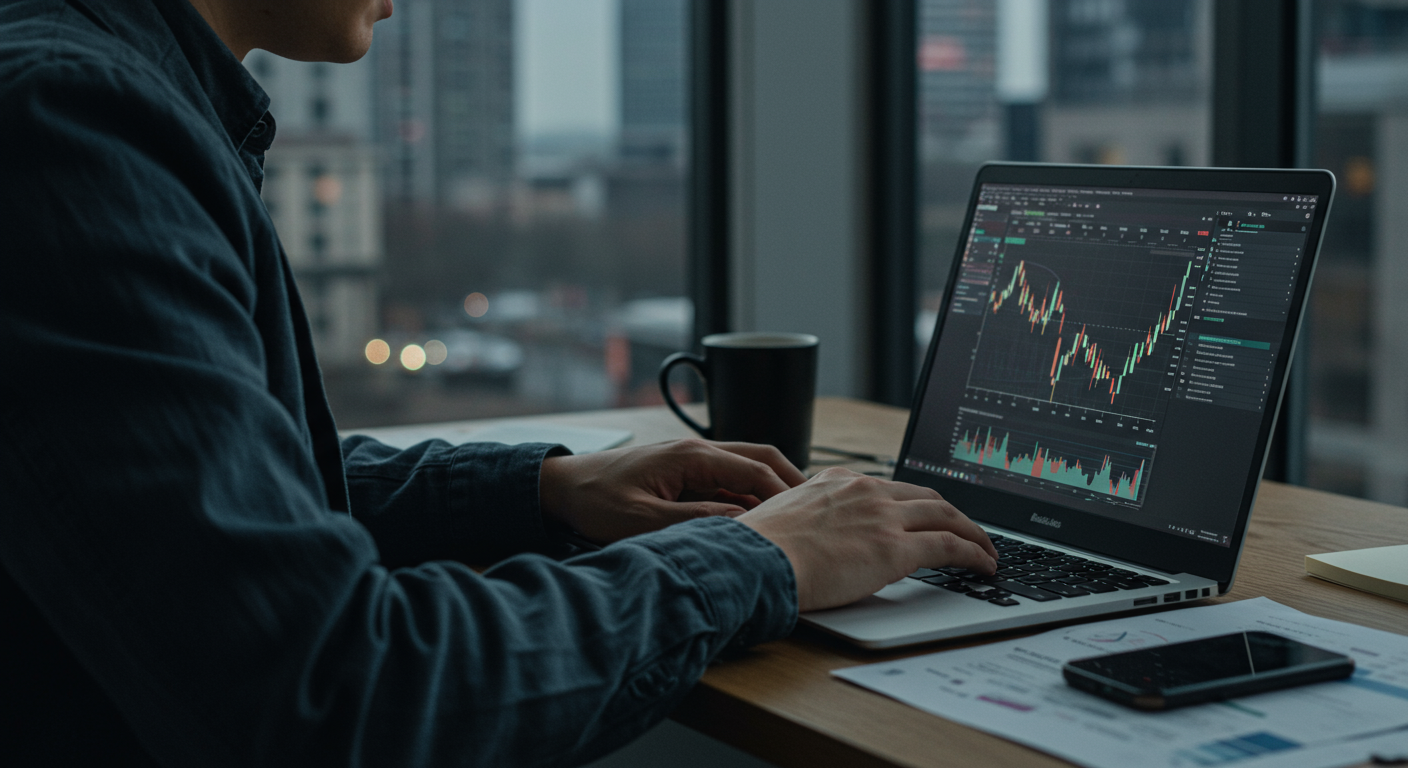Remember When Bitcoin Was the Only Game in Town?
So, I was scrolling through r/CryptoMarkets the other day and saw a post titled "Could the alt season be coming 👀". It was short and sweet: Solana and Ethereum are up, Bitcoin's not really moving, could this be the sign? It got me thinking – are we really about to see altcoins take the spotlight, and what does that mean for those of us trading crypto from different corners of the world? For a long time, especially when you're just getting into crypto, it feels like Bitcoin dictates everything. Bitcoin sneezes, the whole market catches a cold, right? But lately, things feel a little… different. We've seen some altcoins, like Solana and Ethereum as the Reddit post mentioned, showing serious strength, even when Bitcoin's just been chilling sideways. This isn't just about price action, though. It's about the underlying narratives, the development activity, and the overall sentiment.

What's Actually Happening with Bitcoin and Altcoins?
Let's break down what's been happening, starting with Bitcoin. Bitcoin's been consolidating, which isn't necessarily a bad thing. After a strong run, some sideways action is healthy. It allows the market to digest gains and build a base for the next move. But the key is that it hasn't been leading the charge lately. Meanwhile, you've got Ethereum, which has been on a tear, especially with all the buzz around the upcoming upgrades and the continued growth of its ecosystem. And then there's Solana, which has been a powerhouse, attracting a lot of attention with its speed and scalability. What's interesting is that these altcoins aren't just pumping in isolation. They're often driven by specific catalysts, like technological advancements, partnerships, or adoption metrics. This suggests a more discerning market, one that's looking beyond Bitcoin for opportunities. The comments on the Reddit post echoed this sentiment, with many users pointing to the increasing number of projects building on these alternative blockchains and the growing interest in decentralized applications (dApps). People are actively seeking out alternatives, and that's a big shift.
How Does This Affect Your Trading Strategy?
So, what does this mean for you, the international crypto trader? Well, first off, it means that you can't afford to be a Bitcoin maximalist anymore. Don't get me wrong, Bitcoin is still the king, and it's still a crucial part of any crypto portfolio. But if you're only focusing on Bitcoin, you're missing out on a ton of potential gains. This means diversifying your portfolio and allocating some capital to promising altcoins. But here's the thing: you can't just blindly ape into any random altcoin. You need to do your research and understand the fundamentals of each project. What problem is it solving? What's the team behind it? What's the tokenomics like? These are all crucial questions to ask before investing. And remember, altcoins are generally more volatile than Bitcoin, so you need to be prepared for potentially larger swings in price. One strategy I've found helpful is to use a core-satellite approach, where you allocate a larger portion of your portfolio to Bitcoin and other established cryptocurrencies, and then use a smaller portion to speculate on altcoins with higher growth potential. It's about finding the right balance between risk and reward. I usually check Changelly to get an idea of the different altcoins available.
The Risks Nobody Really Discusses
Okay, let's talk about the stuff nobody really wants to talk about: the risks. Altcoin season can be incredibly profitable, but it can also be incredibly dangerous if you're not careful. One of the biggest risks is getting caught up in the hype and FOMOing into projects without doing your due diligence. This is how people get rekt. Another risk is the potential for scams and rug pulls. There are a lot of shady projects out there that are just designed to separate you from your money. That's why it's so important to do your research and only invest in projects that you trust. Liquidity can also be a major issue with some altcoins. If you're trying to sell a large amount of a low-liquidity coin, you might not be able to find buyers at the price you want, which can lead to significant losses. Then there's the risk of regulatory crackdowns. Governments around the world are still trying to figure out how to regulate crypto, and some altcoins could be targeted by regulators, which could negatively impact their price. Finally, always consider the tax implications of your crypto trading. Depending on where you live, you may be required to pay taxes on any profits you make from trading altcoins. Consult with a tax professional to understand your obligations. I've seen it happen where traders get excited about the gains, then get slapped with a huge tax bill later on.
Trading Altcoins Internationally: What to Watch Out For
If you're trading from outside the US, there are a few extra things you need to keep in mind. First off, regulations vary widely from country to country. Some countries have embraced crypto, while others are still very skeptical. You need to understand the regulations in your country and make sure you're complying with them. This might mean paying taxes on your crypto gains or reporting your crypto holdings to the government. Some countries have restrictions on which exchanges you can use. For example, some exchanges may not be available in certain countries due to regulatory issues. Make sure you're using an exchange that's licensed to operate in your country. Also, be aware of currency exchange rates and fees. When you're trading crypto in a different currency, you'll need to convert your local currency to the cryptocurrency you want to trade. This can involve fees and unfavorable exchange rates, which can eat into your profits. Tax laws vary quite a bit as well. Always check with a local professional to make sure you're paying the correct amount in your country.

How to Actually Take Advantage of Altcoin Season
Okay, so how do you actually take advantage of altcoin season? First, you need to identify potential winners. Look for projects with strong fundamentals, a solid team, and a growing community. Pay attention to the narratives that are driving the market. Are NFTs hot right now? Is DeFi gaining traction? Look for projects that are riding those trends. Use technical analysis to identify entry and exit points. Look for coins that are breaking out of accumulation patterns or showing signs of strength. But don't rely solely on technical analysis. Always consider the fundamentals as well. Manage your risk by using stop-loss orders. This will help you limit your losses if the market turns against you. Don't put all your eggs in one basket. Diversify your portfolio by investing in a variety of different altcoins. This will help you reduce your overall risk. Be patient and don't expect to get rich overnight. Altcoin season can last for weeks or even months, so don't get discouraged if your investments don't pay off immediately. Rebalance your portfolio regularly. As some altcoins outperform others, you'll need to rebalance your portfolio to maintain your desired asset allocation. Also check out platforms like KuCoin that offer a wide variety of altcoins.
My Final Thoughts: Don't Get Hyped, Get Informed
So, what's my take on all this? I think we are potentially entering an altcoin season, but it's not going to be a repeat of 2017. The market is more mature now, and investors are more discerning. That means that not every altcoin is going to moon. In fact, most of them will probably fail. But the ones that do succeed could generate massive returns. I believe the key is to stay informed, do your research, and manage your risk. Don't get caught up in the hype and FOMO into projects without understanding what you're investing in. Remember, crypto is a long-term game. Don't try to get rich quick. Focus on building a solid portfolio of quality assets that you believe in. And most importantly, be prepared to lose money. Crypto is a volatile market, and there's always a risk of losing your entire investment. Only invest what you can afford to lose. Maybe I'm wrong, and Bitcoin will suddenly surge and leave the altcoins in the dust. But based on what I'm seeing, I think the odds are in favor of altcoins outperforming Bitcoin in the near term.